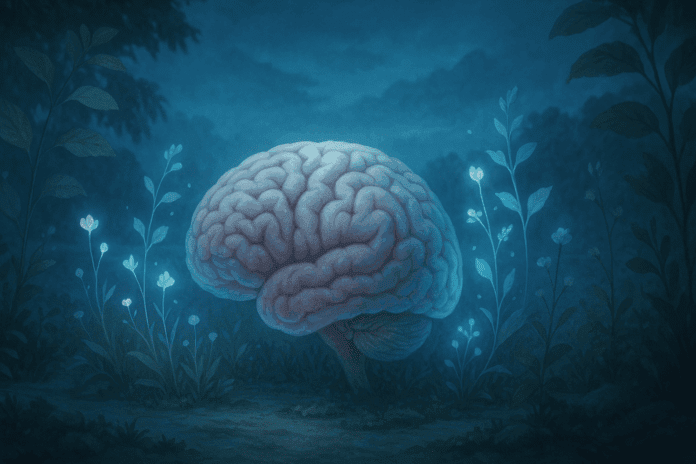Anxiety is an increasingly common concern in today’s fast-paced world, affecting individuals across all ages, professions, and walks of life. While short-term anxiety may arise in response to specific stressors, chronic anxiety can disrupt daily function, sleep, and long-term brain health. Many people turn to various forms of relief, often asking, “What can I take for anxiety that works fast but also supports cognitive longevity?” Addressing this question requires a nuanced exploration of both pharmaceutical and natural options that offer immediate anxiety relief while promoting long-term neurological resilience.
You may also like : Best Rated Nootropics for Brain Health: Top Supplements to Enhance Focus, Memory, and Longevity
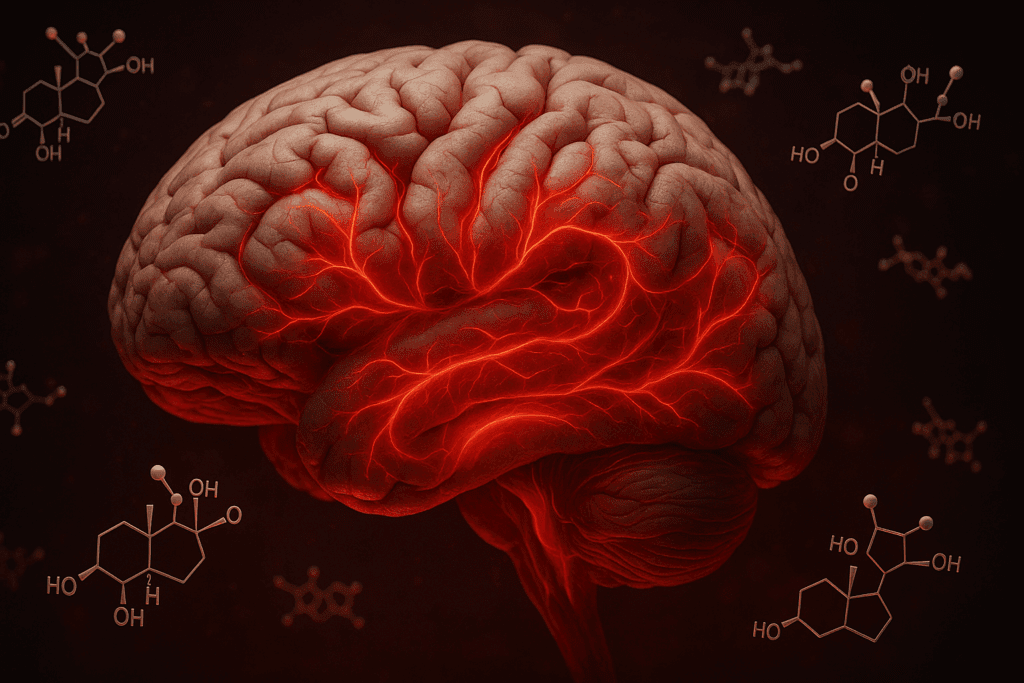
Understanding the Complex Nature of Anxiety and Brain Health
Anxiety is not simply a psychological phenomenon; it is deeply rooted in neurobiology. Chronic stress activates the hypothalamic-pituitary-adrenal (HPA) axis, flooding the brain with cortisol and other stress hormones. Over time, excessive cortisol can impair the hippocampus, a key structure involved in memory and emotional regulation. This makes it critical to address anxiety with interventions that not only soothe symptoms but also safeguard cognitive integrity. Thus, identifying what to take for anxiety requires considering both short-acting agents for symptom relief and long-acting strategies for neuroprotection.
Immediate Relief: Fast-Acting Anxiety Medications and Their Implications
For those in acute distress, immediate anxiety relief medication options are often the first line of defense. Benzodiazepines such as lorazepam and alprazolam are widely recognized for their rapid onset of action. These drugs act by enhancing the effect of GABA, a calming neurotransmitter in the brain. While they provide near-instant relief from panic and intense nervousness, they are not suitable for long-term use due to the risk of dependence, cognitive blunting, and withdrawal.
Other options include beta-blockers like propranolol, which blunt the physical symptoms of anxiety such as racing heart or trembling, and antihistamines like hydroxyzine, which also offer fast-acting sedative effects without the addictive potential of benzodiazepines. For many, these quick anxiety relief medications are valuable tools in acute settings, such as before public speaking or during panic attacks. However, they do little to address the underlying neural imbalances that fuel anxiety long term.
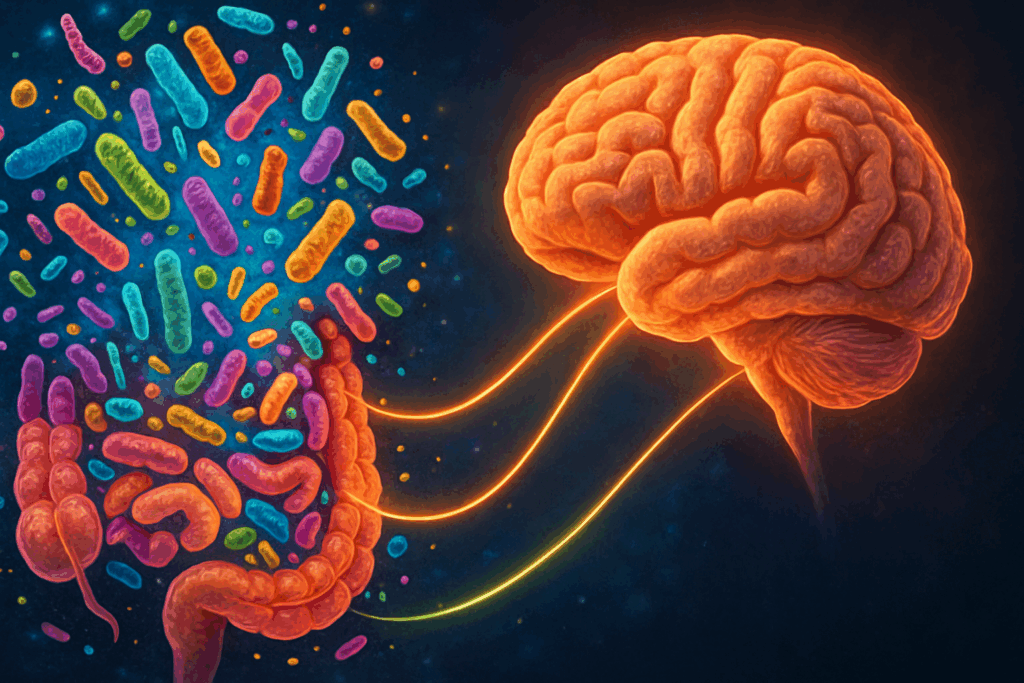
The Gut-Brain Axis: A Microbiome-Driven Approach to Anxiety
One of the most promising but often underappreciated aspects of anxiety management involves the gut-brain axis. This bidirectional communication pathway between the enteric and central nervous systems means that gut health significantly impacts brain function, including mood regulation. Dysbiosis, or an imbalance in gut microbial populations, has been strongly associated with anxiety, depression, and even cognitive impairment.
Probiotics such as Lactobacillus rhamnosus and Bifidobacterium longum have shown anxiolytic effects in both animal and human studies. These strains are thought to influence the production of gamma-aminobutyric acid (GABA) and serotonin—two neurotransmitters essential for mood stabilization. Psychobiotics, a class of probiotics with direct mental health benefits, are increasingly being considered in functional psychiatry as a natural way to enhance mood and cognitive function.
Prebiotics like galacto-oligosaccharides and inulin can also support anxiety relief by feeding beneficial gut bacteria, which in turn produce neuroactive compounds. Fermented foods such as kefir, sauerkraut, and kimchi offer an accessible way to introduce live microorganisms that support both digestive and mental health.
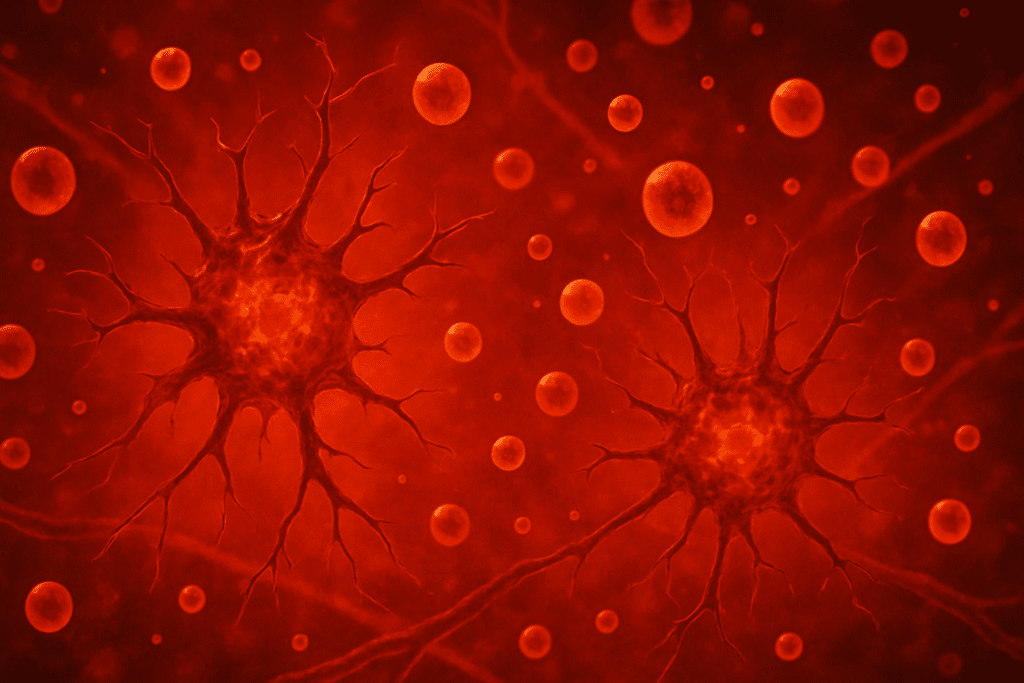
Neuroinflammation and Its Role in Chronic Anxiety
An area of growing interest in neuropsychiatry is the link between inflammation and anxiety. Chronic low-grade inflammation has been implicated in mood disorders and neurodegeneration. Pro-inflammatory cytokines such as IL-6 and TNF-alpha may disrupt neurochemical balance and impair the blood-brain barrier, exacerbating anxiety and threatening long-term cognitive resilience.
Anti-inflammatory nutraceuticals like curcumin, resveratrol, and quercetin offer potential dual-action benefits. Curcumin, derived from turmeric, has been shown to modulate inflammatory pathways and increase brain-derived neurotrophic factor (BDNF), a protein involved in neuroplasticity. Similarly, resveratrol, found in grapes and berries, has neuroprotective and calming effects that may support individuals with chronic anxiety.
While these compounds are not typically considered instant anxiety relief medication, they may serve as long-term modulators of brain inflammation, thereby reducing the underlying physiological contributors to anxiety while protecting against cognitive decline.
SSRIs, SNRIs, and Long-Term Cognitive Considerations
For those seeking sustained relief, selective serotonin reuptake inhibitors (SSRIs) and serotonin-norepinephrine reuptake inhibitors (SNRIs) are often prescribed. These medications, including sertraline, escitalopram, and venlafaxine, modulate the brain’s serotonergic and noradrenergic systems, gradually stabilizing mood and reducing anxiety symptoms over time. Unlike instant anxiety meds, these drugs typically take several weeks to show full efficacy.
Importantly, SSRIs and SNRIs have mixed implications for brain health. Some evidence suggests that SSRIs may enhance neurogenesis in the hippocampus, supporting brain plasticity. Others raise concerns about long-term use potentially leading to emotional blunting or decreased cognitive flexibility. Patients seeking the best medication for stress and anxiety should consult with a knowledgeable clinician who can balance the need for symptom relief with a strategy to preserve long-term cognitive function.

Natural Calming Pills and Supplements: Do They Work?
Many individuals prefer natural approaches, often asking, “What can I take to calm my nerves without relying on pharmaceuticals?” Several natural compounds have demonstrated anxiolytic properties, some with promising neuroprotective potential. L-theanine, an amino acid found in green tea, is one of the most popular options. It promotes alpha brainwave activity, which is associated with relaxed alertness, and it has been shown to reduce cortisol levels under stress.
Ashwagandha, an adaptogenic herb, has gained attention for its ability to modulate the stress response and lower cortisol. Clinical studies have indicated that standardized extracts of ashwagandha can reduce anxiety scores in individuals with chronic stress. Another popular supplement is magnesium, which plays a crucial role in regulating NMDA receptors and supporting a balanced mood. Low magnesium levels have been linked to increased anxiety, and supplementation may help restore emotional equilibrium.
These calming pills may not function as immediate anxiety relief medication in the same way as benzodiazepines, but they offer a gentler, non-habit-forming approach with the potential for long-term brain health benefits. Importantly, consumers should choose high-quality, standardized formulations to ensure consistent therapeutic outcomes.
Nootropic Support for Anxiety and Cognitive Longevity
Nootropics, or cognitive enhancers, are often associated with memory and focus, but many also possess anxiolytic properties. Bacopa monnieri, for example, is an herb traditionally used in Ayurvedic medicine that has been shown to reduce anxiety while supporting memory and processing speed. It works by modulating serotonin and dopamine receptors and may also offer antioxidant protection to neural tissues.
Another dual-action nootropic is Rhodiola rosea, which enhances resilience to physical and psychological stress. It has been found to reduce fatigue, improve mood, and blunt the effects of cortisol—making it a valuable component in a comprehensive strategy for anxiety management and cognitive preservation.
For those wondering what is the best medicine for stress and anxiety that also supports brain function, combining nootropics with traditional therapies may be a compelling strategy. However, such combinations should always be evaluated for interactions and tailored to the individual’s needs, preferably under professional guidance.

The Emerging Role of Cannabinoids in Anxiety Treatment
Cannabidiol (CBD), a non-psychoactive compound derived from hemp, has quickly gained traction as a natural anxiolytic. Research shows that CBD interacts with serotonin receptors and enhances endocannabinoid tone, resulting in mood stabilization and reduced anxiety.
Unlike THC, CBD does not induce euphoria or impairment, making it more appropriate for daily use. Its ability to reduce cortisol, promote sleep, and decrease social anxiety makes it a compelling option for those who prefer plant-based calming pills. Nanoemulsified or liposomal CBD formulations offer faster absorption and greater bioavailability, which may provide quicker relief during high-stress moments.
However, not all CBD products are created equal. Consumers should look for third-party tested, full-spectrum or broad-spectrum extracts to ensure therapeutic efficacy. When combined with other supportive nutrients and stress-reduction strategies, CBD can be part of a holistic approach to what is the best medicine for stress and anxiety.
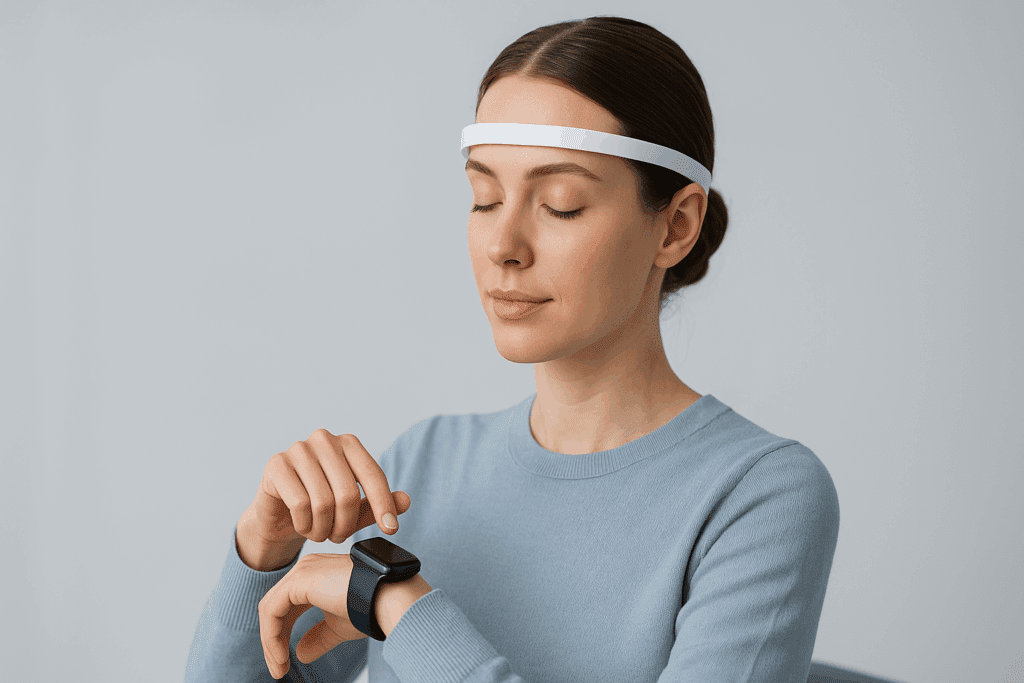
Digital Therapeutics and Anxiety Reduction Technologies
In the digital age, technology is also playing a role in the treatment of anxiety and the promotion of cognitive health. Mobile apps that incorporate biofeedback, guided meditation, and cognitive behavioral strategies offer accessible tools for managing anxiety in real time.
Wearable devices that track HRV and stress levels can help individuals become more aware of their physiological state and implement interventions before anxiety escalates. Some platforms use machine learning to adapt interventions based on user responses, providing a more personalized approach to mental health management.
Emerging tools such as transcranial direct current stimulation (tDCS) and neurofeedback are also showing promise in enhancing prefrontal cortex function and improving emotional regulation. While not classified as quick anxiety relief medication in the traditional sense, these tools have the potential to deliver lasting neural benefits without pharmaceutical intervention.
Sleep Optimization as a Pillar of Anxiety Management
Chronic sleep deprivation is both a cause and a consequence of anxiety. Disrupted sleep impairs emotional regulation, increases cortisol, and reduces resilience to daily stressors. Therefore, one of the most effective and often underutilized strategies for long-term anxiety relief is sleep optimization.
Melatonin, valerian root, and GABA supplements can help restore circadian rhythms, while behavioral approaches such as cognitive behavioral therapy for insomnia (CBT-I) offer lasting results. Blue light exposure reduction, consistent sleep-wake cycles, and magnesium-rich evening meals can also improve sleep quality.
Addressing sleep not only reduces the need for calming pills or medicine to calm down but also supports cognitive recovery and neurogenesis. Individuals who sleep better are more likely to make rational decisions, regulate emotions, and remain cognitively sharp with age.
Lifestyle and Behavioral Interventions for Lasting Change
While the question “what can I take for anxiety?” often leads to a search for pills and quick fixes, it is equally essential to address the behavioral and environmental factors contributing to anxiety. Practices such as mindfulness meditation, cognitive behavioral therapy (CBT), and breathwork have shown substantial efficacy in reducing anxiety symptoms and improving brain connectivity.
Regular physical activity also plays a critical role in managing anxiety. Exercise enhances endorphin production, improves sleep, and supports the structural integrity of brain regions involved in mood regulation. Likewise, nutritional strategies—such as adopting an anti-inflammatory diet rich in omega-3 fatty acids, polyphenols, and B vitamins—can support both mood and cognitive health over time.
These lifestyle interventions do not replace the need for quick anxiety relief medication during acute episodes, but they serve as essential pillars of a long-term plan. By integrating behavioral and biological approaches, individuals can experience not only symptom relief but also sustained mental clarity and resilience.
Meds for Overthinking: Breaking the Cycle of Cognitive Rumination
A common yet often overlooked aspect of anxiety is chronic overthinking. Many individuals suffer not just from acute anxiety episodes but from a persistent cycle of rumination that impairs concentration, decision-making, and sleep. Medications for overthinking often overlap with general anxiety treatments, but targeting cognitive inflexibility requires specific interventions.
Low-dose SSRIs or SNRIs may help reduce cognitive hyperactivity by balancing neurotransmitters. In some cases, psychiatrists may recommend medications that influence the dopaminergic system to improve cognitive control and reduce obsessive thought patterns. For those who prefer natural routes, adaptogens like lion’s mane mushroom have shown early promise in enhancing neuroplasticity and reducing rumination.
Ultimately, the best medication for stress and anxiety may include agents that not only blunt emotional reactivity but also promote cognitive flexibility. Combining pharmacological options with CBT and mindfulness can be especially effective in disrupting patterns of excessive worry and overanalysis.
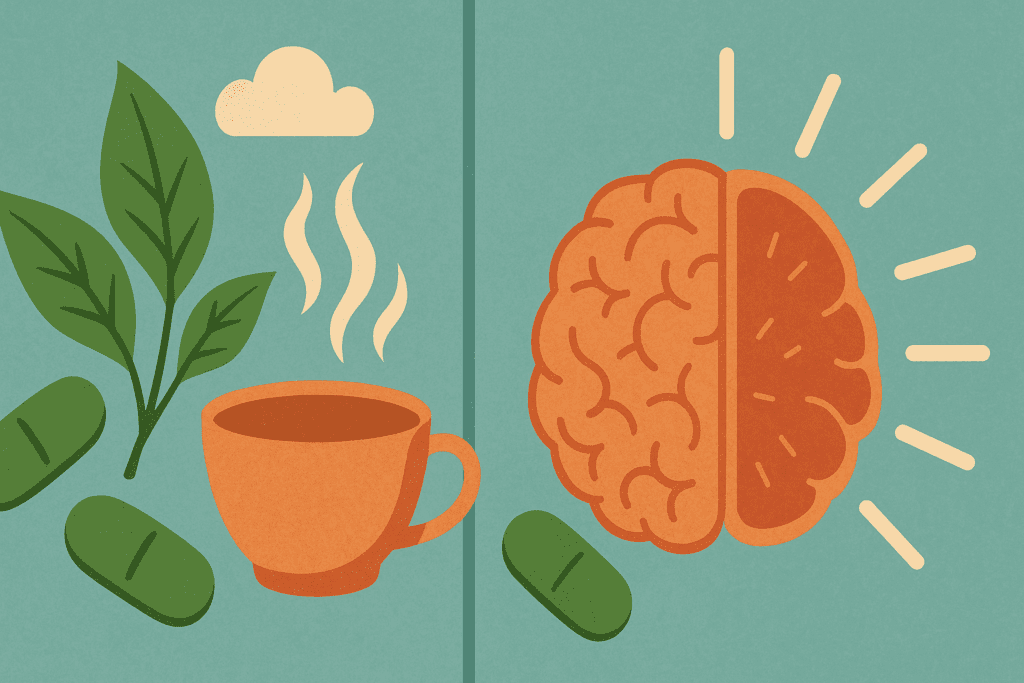
What to Take for Anxiety When You Need to Stay Focused
Many people are faced with the paradox of needing to calm down while staying sharp, especially in high-performance environments. In such cases, traditional sedatives may impair cognition, making them less ideal. This is where compounds like L-theanine shine. When combined with caffeine in low doses, L-theanine can provide balanced stimulation while reducing anxiety—a combination shown to enhance focus without the jitteriness typically associated with caffeine alone.
Another compound gaining attention is phosphatidylserine, a phospholipid that supports brain cell membrane integrity and helps regulate the HPA axis. It has been shown to reduce cortisol and improve attention in individuals under stress. These options may not be classified as instant anxiety meds in the conventional sense, but they provide a calm alertness that aligns well with the demands of modern life.
For those who experience anxiety in high-pressure work or academic settings, these interventions offer a nuanced answer to the question, “What can I take to calm my nerves without losing focus?” Selecting supplements or medications that support both emotional balance and cognitive sharpness is essential for long-term functionality.
Stress Relief Meds and Their Role in Preventing Cognitive Decline
Emerging research has begun to explore the link between chronic anxiety and the risk of cognitive decline or dementia. Prolonged exposure to stress hormones may contribute to hippocampal atrophy and neuroinflammation, accelerating brain aging. Thus, the use of effective stress relief meds is not just about comfort—it may be a proactive measure to preserve long-term brain health.
Both prescription medications and natural supplements play a role here. For example, SSRIs have been associated with preserved hippocampal volume in some populations, while omega-3 supplements have shown promise in reducing inflammation and improving mood. Lifestyle-based stress management techniques, when practiced consistently, have also been associated with enhanced telomere length and reduced biological aging.
Those who ask what to take for anxiety are often thinking about immediate relief, but the long-term benefits of reducing stress go far beyond daily comfort. Managing stress effectively may be one of the most important lifestyle choices for sustaining cognitive performance into later life.
Personalized Treatment: Tailoring Anxiety Relief to the Individual
There is no one-size-fits-all answer to the question of what is the best medication for stress and anxiety. Each individual brings a unique biochemical, psychological, and lifestyle profile to the table. For some, fast-acting medications may be essential for crisis intervention. For others, long-term supplementation with natural compounds and lifestyle adjustments may offer sufficient relief and sustained cognitive benefits.
Genetic testing, functional medicine assessments, and careful history-taking can help determine which interventions are most appropriate. A person with high cortisol and poor sleep may benefit from calming pills that include ashwagandha or magnesium. Another individual with a history of trauma and intrusive thoughts might require a more intensive approach involving therapy and pharmaceutical support.
The key lies in developing an integrative strategy that addresses both the immediate discomfort and the broader neurobiological landscape. By taking a comprehensive and individualized approach, patients can achieve a balance between symptom control and long-term brain vitality.
Frequently Asked Questions (FAQ): Exploring Advanced, Natural, and Emerging Options for Anxiety and Stress Relief
1. Are there any overlooked daily habits that enhance the effects of calming pills or other anxiety supplements?
Yes, certain lifestyle practices can significantly enhance the effectiveness of calming pills and other interventions for anxiety. Consistency in circadian rhythm, particularly waking up and going to bed at the same time every day, helps stabilize cortisol and melatonin levels, amplifying the calming response of both natural and pharmaceutical remedies. Breathwork and vagus nerve stimulation techniques—like humming, gargling, or cold exposure—can prime the body’s parasympathetic system, allowing medicine to calm down the mind more efficiently. Additionally, nutrient timing—like taking magnesium-rich foods in the evening—can work synergistically with meds for overthinking by regulating GABA activity. These daily rituals may not replace medication for overthinking or instant anxiety relief medication, but they can certainly boost their long-term effectiveness.
2. How do genetics influence the effectiveness of stress relief meds or anxiety medications?
Genetics can profoundly impact how individuals respond to stress relief meds and quick anxiety relief medication. Variants in genes like COMT, MAO-A, and SLC6A4 (linked to serotonin transport) can determine how quickly your body metabolizes or responds to medications such as SSRIs or benzodiazepines. People with slower-metabolizing enzymes may experience prolonged effects—or even side effects—from medicine for relaxation, while fast metabolizers may need higher or more frequent doses of calming pills. Pharmacogenetic testing is now increasingly used to personalize what is the best medicine for stress and anxiety, optimizing outcomes while reducing trial-and-error. This emerging approach provides a more precise answer to the common question, “What can I take for anxiety that actually works for me?”
3. Can combining different natural supplements be as effective as instant anxiety meds?
Combining natural compounds—like L-theanine, magnesium, GABA, and adaptogens such as Rhodiola—can mimic the effects of instant anxiety meds in certain cases, especially for mild to moderate symptoms. These synergistic blends often act on multiple pathways: GABAergic, serotonergic, and HPA-axis regulation, offering a multi-dimensional form of relief. For example, combining magnesium with L-theanine before bedtime may help provide immediate anxiety relief medication benefits without causing daytime drowsiness. While they may not replace high-dose prescription calming pills in severe anxiety, they can serve as valuable tools when exploring what to take for anxiety with fewer long-term side effects. Always consult a healthcare provider when stacking supplements to avoid unintended interactions.
4. What role does gut health play in the effectiveness of medicine to calm down or reduce overthinking?
Gut health is a pivotal but often neglected factor in determining how well one responds to medicine to calm down or reduce anxious rumination. The gut-brain axis facilitates bidirectional communication through the vagus nerve, and imbalances in gut microbiota can worsen anxiety symptoms. Certain strains like Lactobacillus rhamnosus have been shown to modulate GABA receptors in the brain, potentially enhancing the effectiveness of meds for overthinking. If you’re wondering what can I take to calm my nerves that works naturally, consider adding high-fiber prebiotics or fermented foods alongside your current stress relief meds. Improving gut health could boost your body’s natural ability to produce serotonin and dopamine, making both natural and pharmaceutical treatments more effective.
5. Are there any professional therapies that work better when combined with medication for overthinking or stress relief meds?
Absolutely—cognitive behavioral therapy (CBT), acceptance and commitment therapy (ACT), and EMDR (eye movement desensitization and reprocessing) often yield better outcomes when paired with medication for overthinking or stress relief meds. These therapies address the root cognitive distortions or trauma-related triggers while medications manage the physiological symptoms. CBT, for instance, helps individuals reframe the intrusive thoughts that medication alone cannot rewire. When clients also ask what is the best medicine for stress and anxiety, therapists often recommend a dual-pronged approach. This holistic strategy not only accelerates recovery but can also help reduce dependence on instant anxiety meds over time by equipping patients with lifelong coping skills.
6. What are the potential drawbacks of relying solely on instant anxiety relief medication?
Relying solely on instant anxiety relief medication can provide temporary respite but may mask underlying psychological or environmental contributors. Over time, tolerance can develop, particularly with fast-acting benzodiazepines, requiring higher doses for the same effect—a major concern for those asking what to take for anxiety on a long-term basis. Instant anxiety meds are best viewed as a short-term bridge, not a standalone solution. Moreover, without complementary therapy or lifestyle adjustments, rebound anxiety is a real risk when medication is stopped. The key is integrating medication with other tools like mindfulness, exercise, or even dietary interventions to form a sustainable mental health strategy.
7. Can wearable neurotechnology offer alternatives to medicine for relaxation or overthinking?
Yes, wearable neurotech devices like CES (Cranial Electrotherapy Stimulation) units and biofeedback wearables are becoming viable complements—or even alternatives—to medicine for relaxation and managing overthinking. CES devices gently stimulate the brain’s electrical activity to promote calmness and may be particularly useful for people sensitive to calming pills. Meanwhile, biofeedback devices can help individuals gain real-time awareness of physiological states, allowing them to self-regulate anxiety without relying solely on quick anxiety relief medication. While still under evaluation in large-scale clinical trials, these devices are gaining popularity among those seeking non-pharmacological answers to the question: what can I take for anxiety without side effects?
8. How do hormonal changes affect the need for stress relief meds or medicine to calm down?
Hormonal shifts—especially involving cortisol, estrogen, and progesterone—can heavily influence when and how stress relief meds or medicine to calm down should be used. For example, perimenopausal women may find that fluctuating estrogen levels exacerbate anxiety symptoms, making them more reliant on calming pills or quick anxiety relief medication during certain phases of their cycle. Cortisol dysregulation due to chronic stress also alters how the body metabolizes medications, potentially diminishing the effectiveness of meds for overthinking. For those asking what can I take to calm my nerves that adapts to changing needs, bioidentical hormone therapy and adaptogens may provide a useful complement. A hormone-aware approach to treatment often leads to better, more consistent outcomes.
9. What is the future of personalized stress and anxiety treatment?
The future of personalized treatment lies in AI-assisted diagnostics, wearable health data, and pharmacogenetics—all of which can fine-tune what is the best medicine for stress and anxiety for each individual. Soon, individuals might wear a device that continuously tracks biomarkers like heart rate variability, cortisol, and sleep quality to predict when they’ll need instant anxiety meds before symptoms peak. AI tools could recommend specific combinations of medication, supplements, and behavioral practices based on real-time data. This level of personalization could dramatically reduce the guesswork in deciding what to take for anxiety or when to use medication for overthinking. It marks a shift toward proactive, rather than reactive, mental health management.
10. Are there ways to transition off long-term calming pills without triggering withdrawal or rebound anxiety?
Yes, but tapering off calming pills must be carefully managed to avoid withdrawal symptoms or rebound anxiety. A gradual dose reduction plan supervised by a healthcare provider is essential, and it often includes integrating alternative therapies such as herbal adaptogens, amino acids like L-theanine, or stress resilience training. Replacing the pharmacological effects of quick anxiety relief medication with long-acting natural compounds like ashwagandha or bacopa can help smooth the transition. For individuals asking what can I take for anxiety during tapering, bridge therapies like non-addictive calming supplements or short-term CBT sessions are often recommended. Strategic tapering combined with lifestyle restructuring can offer a safe path away from long-term pharmaceutical dependence.
Conclusion: Choosing the Right Support for Anxiety and Brain Longevity
In the quest for calm, the answer to what can I take for anxiety often begins with immediate relief but must ultimately evolve into a long-term strategy for mental health and cognitive resilience. Whether one turns to calming pills, stress relief meds, or natural nootropics, the goal should not be merely to suppress symptoms but to support the underlying architecture of the brain.
A well-informed strategy should include a mix of acute interventions—such as quick anxiety relief medication for moments of crisis—and sustainable practices like mindfulness, exercise, and targeted supplementation. Individuals concerned about overthinking may find medications for overthinking helpful, but should also explore therapeutic strategies that reframe thought patterns. For those balancing the need to relax with the desire to stay sharp, compounds like L-theanine, Rhodiola, or phosphatidylserine may offer the ideal solution.
Ultimately, anxiety management is not about finding a single magic pill but about cultivating a toolkit that is both reactive and preventative. When thoughtfully selected and used within the context of evidence-based practices, the right combination of interventions can not only calm the nerves but also nourish the brain for years to come. Those seeking what to take for anxiety are not just looking for peace in the moment—they are investing in their future cognitive health.
natural anxiety supplements, holistic stress remedies, brain calming techniques, herbal mood enhancers, emotional wellness strategies, mental clarity support, non-prescription anxiety aids, cognitive behavioral solutions, adaptogens for stress, serotonin support supplements, vagus nerve stimulation techniques, neurofeedback for anxiety, herbal nerve tonics, lifestyle changes for anxiety, anti-anxiety nutrition tips, anxiety and gut health connection, nootropic calming agents, stress resilience building, GABA-enhancing supplements, mind-body anxiety treatments

